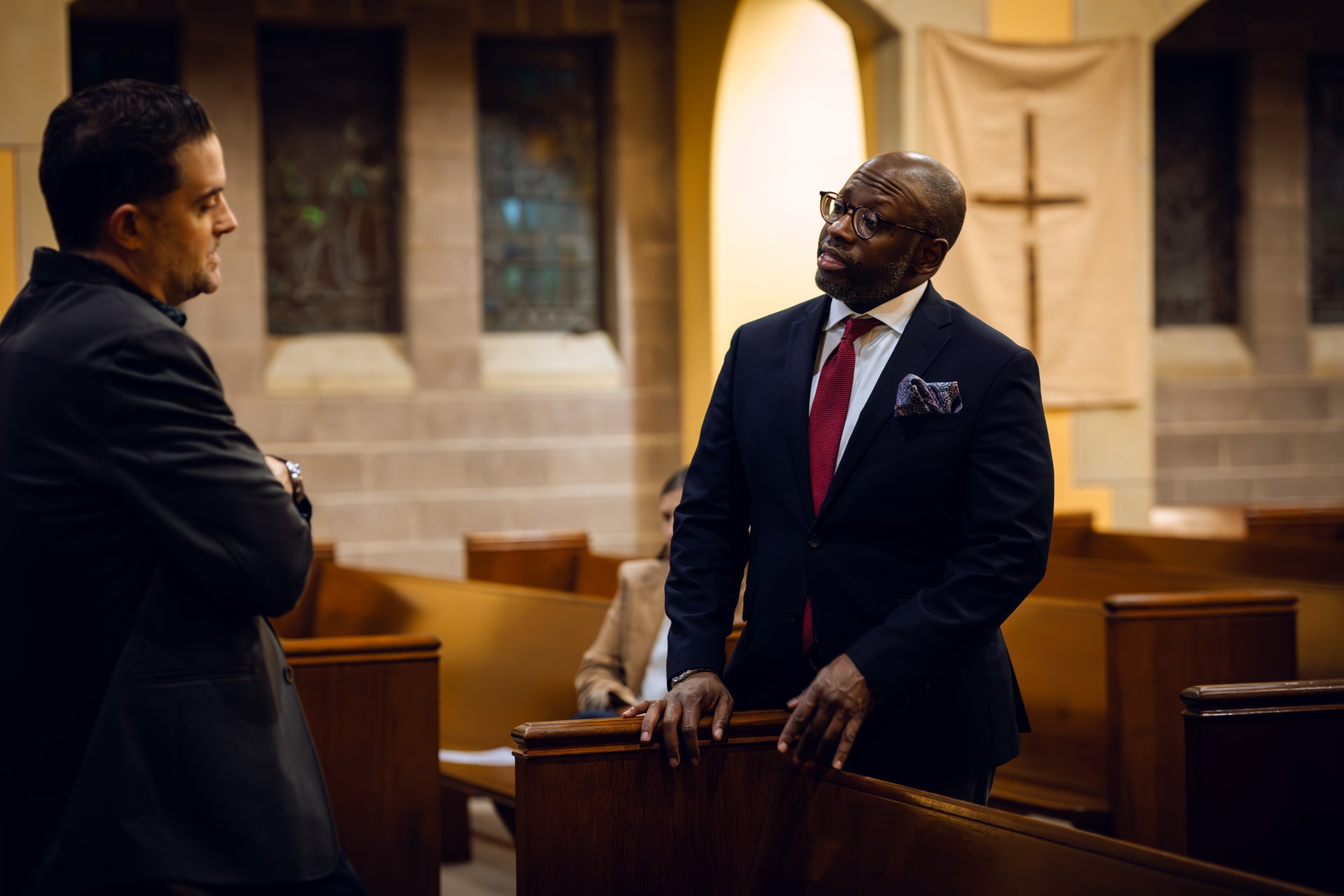Insight Speaker Series - A Night with Dr. Anthony Bradley
February 23rd, 2024
On Friday February 16th the Pacifica Christian High School Minchin Center for Innovation hosted Dr. Anthony Bradley, Professor of Interdisciplinary Studies and Theology at Kuyper College and Distinguished Research Fellow at the Acton Institute, both in Grand Rapids, Michigan.
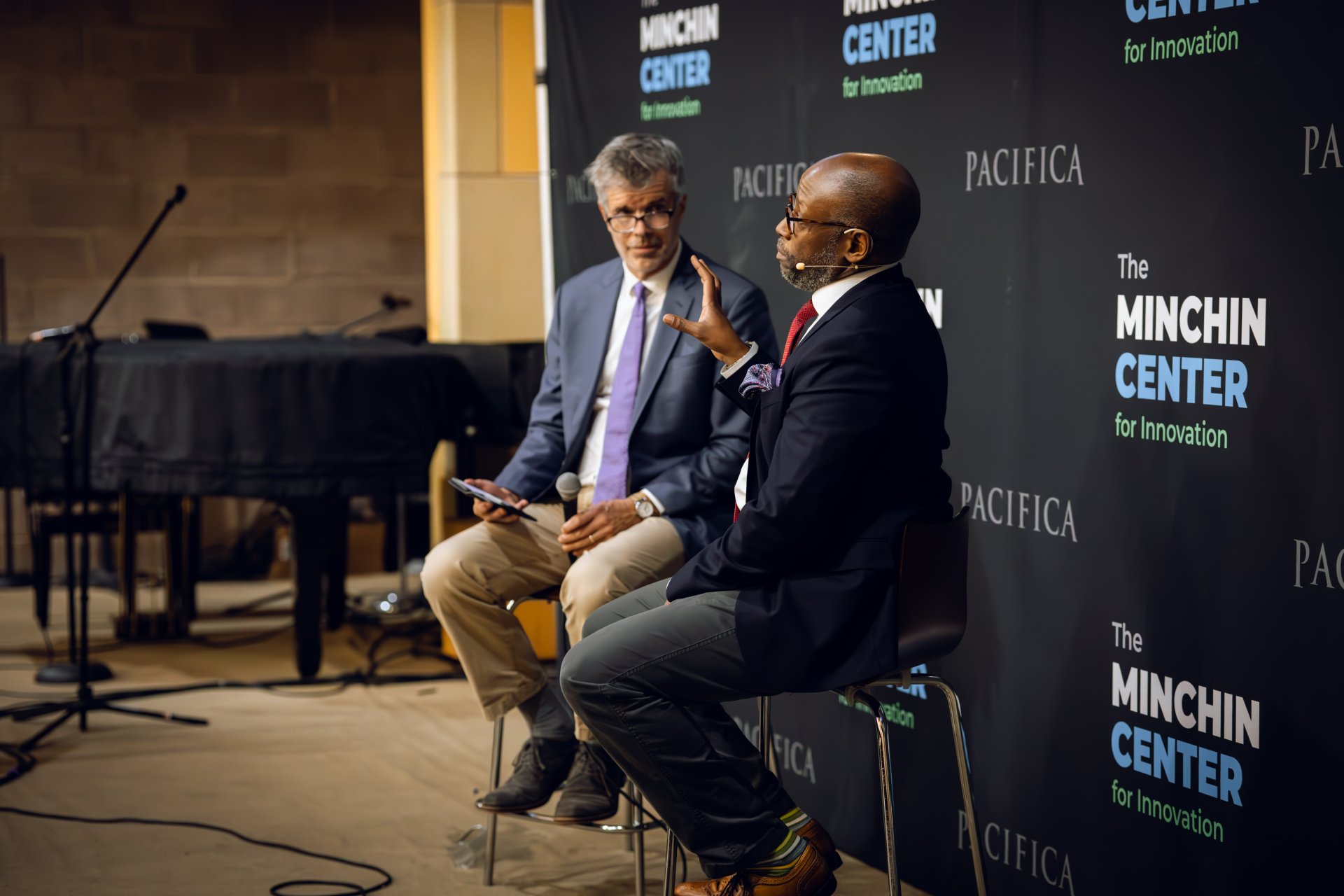
Dr. Bradley's day at Pacficia began with a Noon Honors Seminar, in which 15 students gathered around a conference table to discuss 'Free Speech, Cancel Culture and the Art of Respectful Disagreement.' Dr. Bradley encouraged our students, especially our seniors, to consider now the extent of their commitment to the free exchange of ideas, as that ideal is frequently challenged at our institutions of higher learning—perhaps paradoxically, most vigorously challenged at the most prestigious of those institutions.
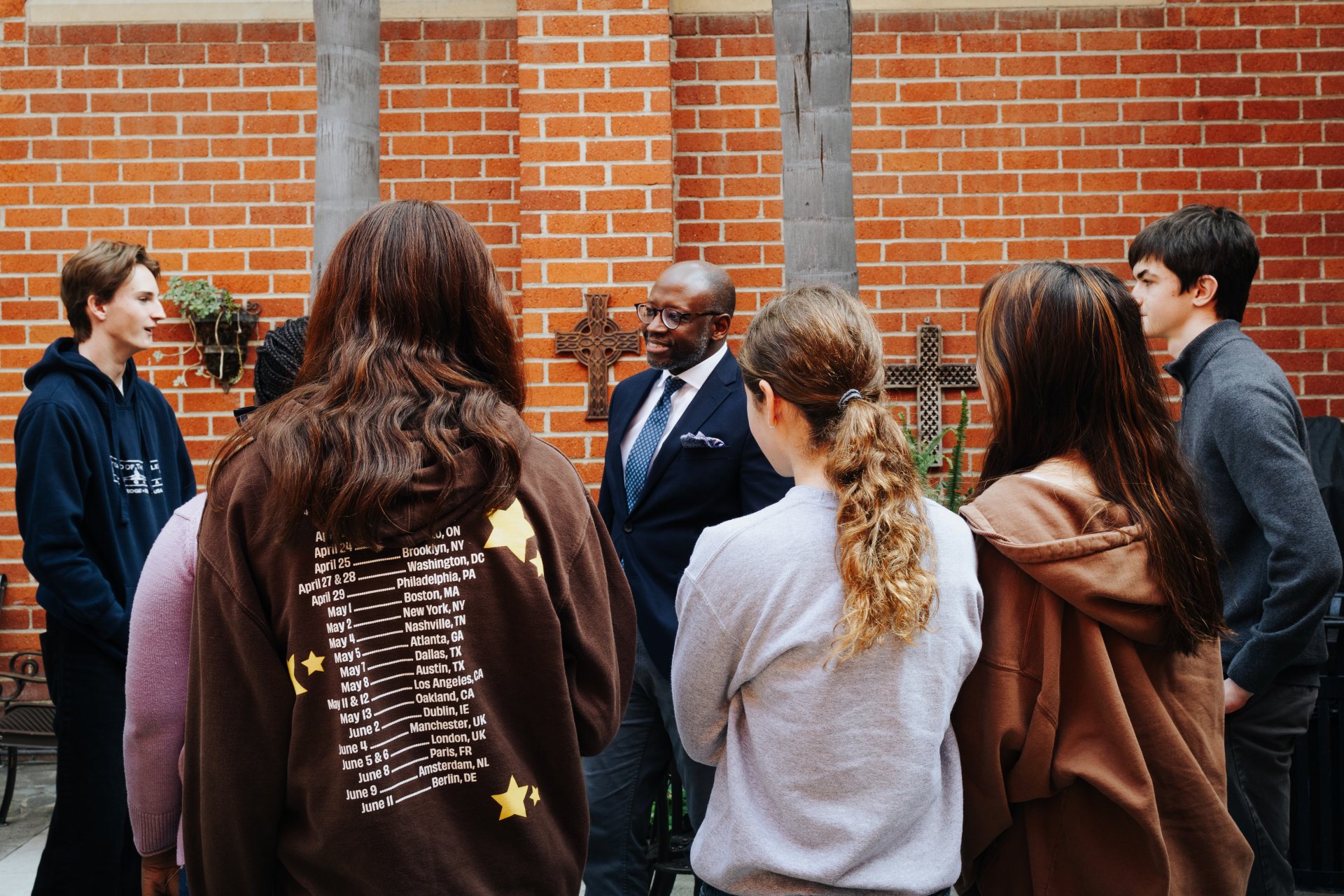
Dr. Bradley laid out the typical sequence of events: free speech is exercised, in the classroom or outside of it, to make a controversial claim; a person or group is made uncomfortable by the claim; the person or group, rather than confronting the individual directly to engage, seeks out authority figures and declares themselves unsafe in the community due to the controversial assertion; and in the final step the initial words used are deemed to be, both actually and potentially, an exercise of violence. The result in many cases is a sanction against the original speaker, whether through formal discipline or what we've now come to call 'canceling' through social condemnation.
To their credit, our students were perfectly willing to engage without much fear of saying the wrong thing as they challenged one another and even Dr. Bradley in a wide-ranging conversation about controversy, conflict and growth. Dr. Bradley reminded us that ideas we now consider utterly beyond the pale were once the prevailing wisdom and in a world without free expression change is vastly more difficult to affect.
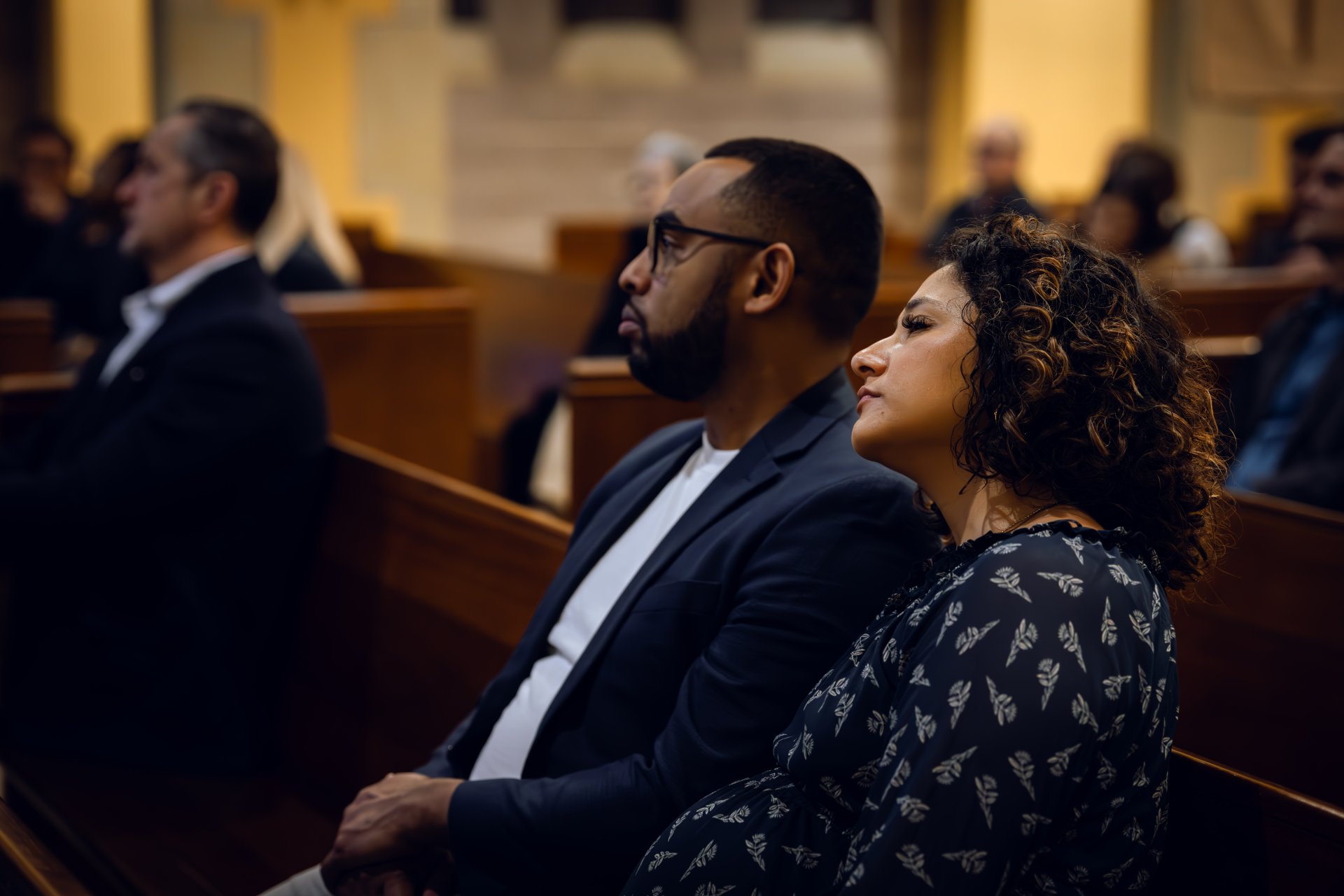 It was an encouraging exercise in what we often refer to around here as “intellectual hospitality”—the willingness to welcome in ideas that may be new or discomfiting without an immediate condemnation of the idea or the speaker. Our students are well-prepared for these sorts of conversations during their time at Pacifica. Whether it be Mr. Comer's Socratic Seminars, Mr. Knight's’ New Testament classes, developing a thesis and counterclaims for Ms. Savage in AP English, cabin meetings at retreat and a myriad of informal conversations our students are well equipped to encounter and engage diverse and even controversial ideas with open and curious minds.
It was an encouraging exercise in what we often refer to around here as “intellectual hospitality”—the willingness to welcome in ideas that may be new or discomfiting without an immediate condemnation of the idea or the speaker. Our students are well-prepared for these sorts of conversations during their time at Pacifica. Whether it be Mr. Comer's Socratic Seminars, Mr. Knight's’ New Testament classes, developing a thesis and counterclaims for Ms. Savage in AP English, cabin meetings at retreat and a myriad of informal conversations our students are well equipped to encounter and engage diverse and even controversial ideas with open and curious minds.
In the evening session in the Pilgrim Lutheran Chapel Dr. Bradley spoke on “The Trauma of Poverty: Why Economic Empowerment Matters.” That session addressed the persistence of poverty in our wealthy society and in particular the difficulty some people have in overcoming adverse childhood experiences in order to lead productive lives. The roots of poverty are many, ranging from the obvious (lack of access to education, healthcare, and housing) to the tragic (fatherlessness, childhood trauma) and even the mundane (geography). Both personal healing and personal accountability are essential if we are to help people escape cycles of poverty. Dr Bradley described the false binary between an individualistic, bootstrapping approach typically favored on the political right and a policy-centered paternalism typically advanced on the political left.
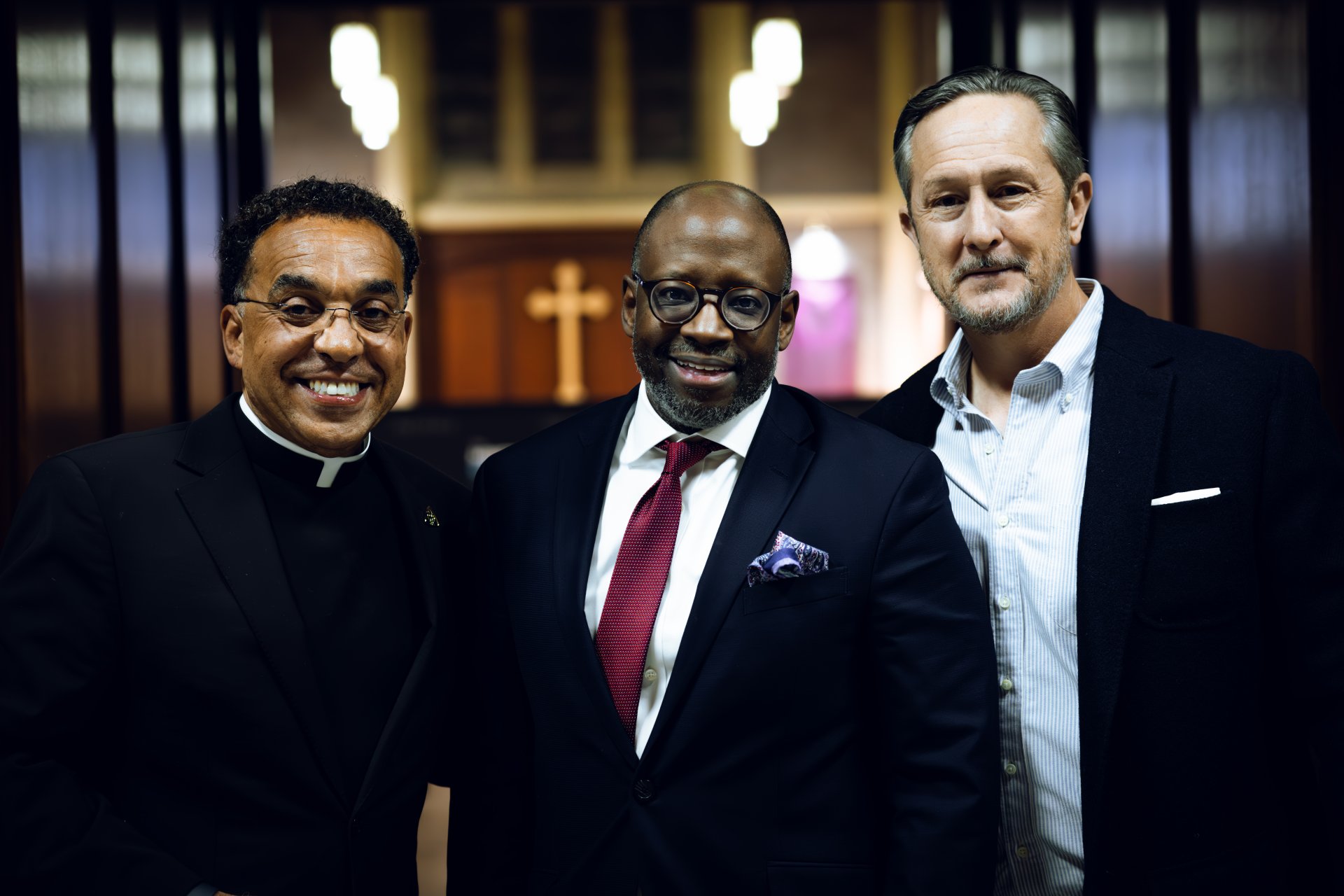
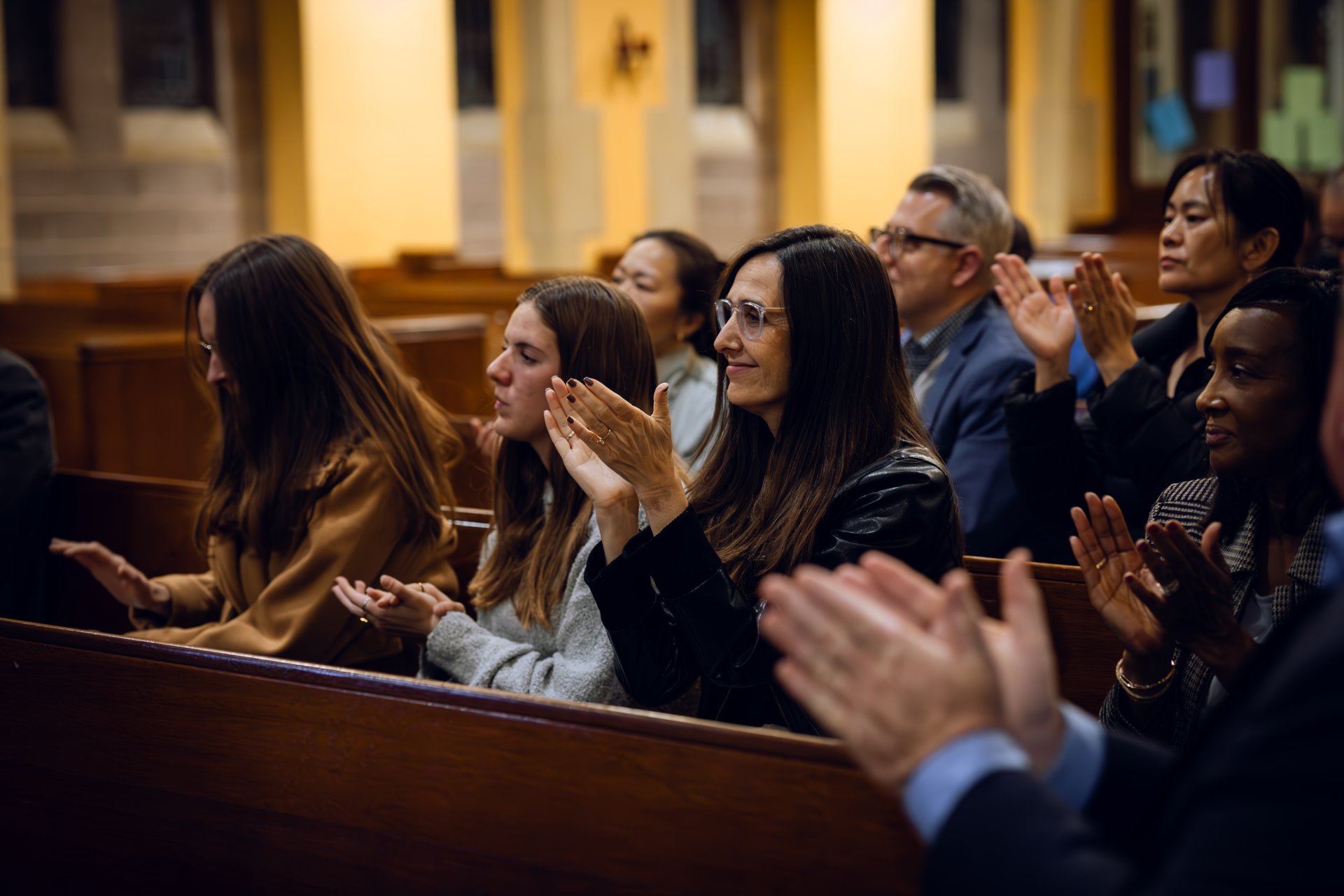
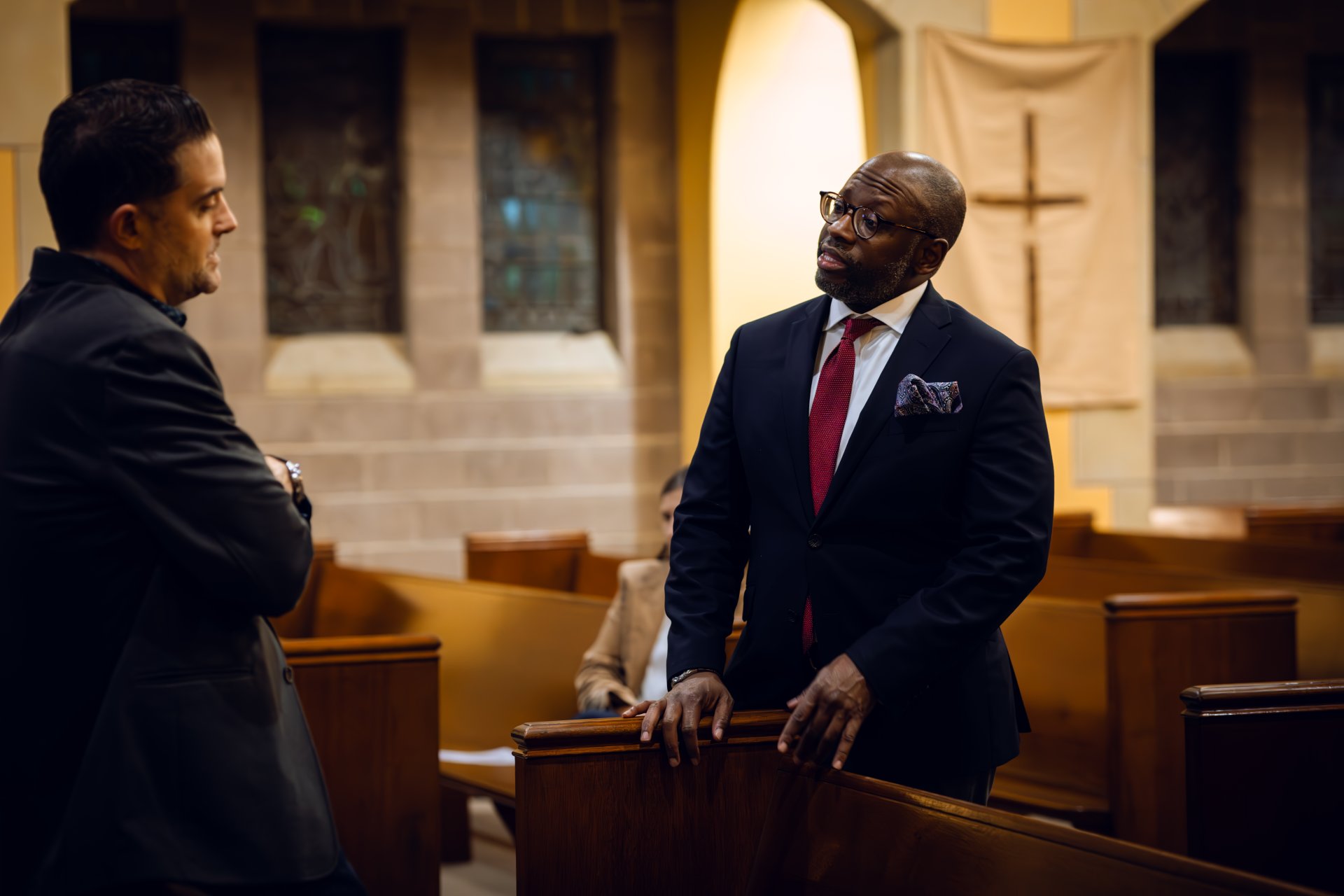
Dr. Bradley singled out three institutions as particularly central to the fight against poverty: marriage, fatherhood, and gainful employment. While public policy can certainly tilt towards or against those institutions, the true change-makers are non-governmental institutions, in particular churches and businesses, that can provide support for marriages and families and the opportunity for employment and advancement. Good jobs, in particular, arise in men a 'nesting instinct' which works to make them better fathers and more inclined to marriage as they can support their families. The virtuous cycle then results in fewer adverse experiences for their children and a greater chance to break free from the cycle of poverty. We can love people out of trauma and towards spiritual and material health. The ethic Dr. Bradley described is encapsulated nicely in the Pacifica Christian motto Gratia et Veritas—Grace and Truth—as well as in the life and ministry of Jesus, who came neither to condemn nor to coddle but to call people to healing and wholeness.
For more information about the Minchin Center for Innovation and the Insight Speaker Series, contact Minchin Center Director John Reimers at jreimers@pacificachristian.org.
Categories
Recent Articles
10 Reasons Content Box

10 Reasons to Choose Pacifica


